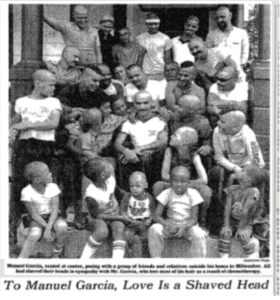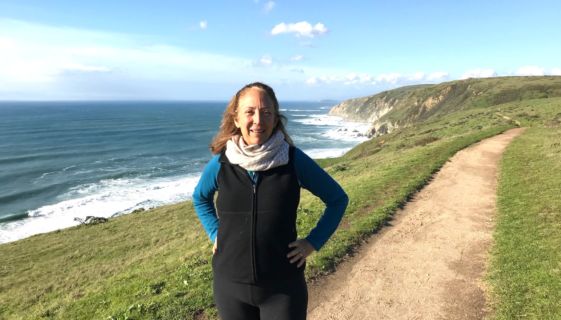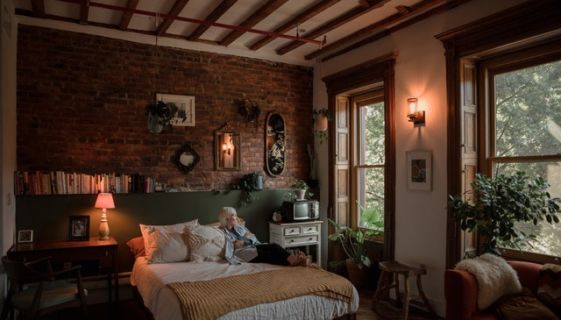By Laura Pole and Nancy Hepp, Beyond Conventional Cancer Therapies
Beyond Conventional Cancer Therapies (BCCT) partners with the Anticancer Lifestyle Program to promote wellness and healing, based on evidence.
As the Beatles said, “All you need is love.” Practically speaking, we need more than love, but love is a necessary ingredient in healing. BCCT considers sharing love and support to be one of the key lifestyle factors that makes a difference in the lives of most people with cancer and those who care for them. Sharing love and support is one of our 7 Healing Practices, which overlap considerably with the Anticancer Lifestyle Program’s course topics.
From hundreds of professional and personal retreats and experiences with people with cancer, we know that being in community and support—as well as going home and revving up social support systems—contributes to long-term, life-changing benefits.
Consider the evidence:
- Sharing love and support (especially emotional support) is linked to positive cancer outcomes.
- Social support can improve your life expectancy as much as obesity, cigarette smoking, hypertension or lack of physical activity can decrease it.
- Overall, people with cancer who are more socially involved (with more friends and relatives) and who participate more in religious and other community groups have a better quality of life and tend to live longer.
- Sharing love and support (especially emotional support) can improve your physical and mental well-being. Support can also decrease depression and post-traumatic stress symptoms, and improve resilience to stress.
- Social support improves quality of life for caregivers, too!
The Society for Integrative Oncology clinical practice guidelines give their strongest level of recommendation to support groups and supportive/expressive therapy as part of a holistic team approach to reduce anxiety, emotional disturbances and chronic pain, and improve quality of life. (You can find more information on BCCT’s Sharing Love and Support page.)
During this pandemic, we’ve been asked to increase our physical distance from one another. Calling it “social distancing” is somewhat of a misnomer, for we are finding many unique and important ways to support each other socially, emotionally and spiritually. In addition to our ideas below, we invite you to tell us how you are sharing love and support while maintaining physical distance through a comment on BCCT’s Sharing Love and Support page.
Tips on building your support team:
- Gather your A-team: Make a list of all the people in your life who can help support you, either emotionally or practically (such as driving you to treatments). Identify the specific kinds of support they can give you. Think about family, friends, neighbors, members of a church or community organization you belong to, workmates, acquaintances you made in a class. Think outside the box to other connections you have to people who would “get” what you’re going through. Maybe there are friends and relatives whom you don’t usually have contact with, but who would like to come back into your life to help you. This is your A-team. Remember, your A-team doesn’t have to be large.
- Consider joining a support group: If you don’t have a strong support system with family and friends, consider joining a support group that has members who are going through similar experiences/challenges as you, such as a cancer-specific support group, a “young adults with cancer” group, a metastatic cancer group, and so on. Healing Circles is an especially well-received support group network, currently offering online circles during the pandemic. Many other organizations are offering online support groups, also. For instance, Smith Center for Healing and the Arts, a Healing Circles community, has moved their support groups online, as well as many of their live, interactive programs in movement, arts and creativity, cooking, stress management and living well with cancer.
- Consider volunteering and other group activities: Consider joining a group like a book club or other discussion group, or taking a class or volunteering. Being part of a support group means you have opportunities to give as well as receive support, which is why we call this practice “sharing love and support.” Many libraries currently offer online group engagement, as do other groups. During the pandemic social isolation, phone and online conversations with those confined close to home is more important than ever. Your local senior services organizations may appreciate volunteers to check in with homebound elders and others. Significant sources of social support reported by children and adolescents with cancer include relationships with immediate family members, fitness classes, age-appropriate support groups, online networks, survivor day picnics, family retreats and facilitation of storytelling.
- Meet with a professional: Consider meeting with a professional who can provide emotional and practical support, such as an oncology social worker, a cancer navigator or a counselor who works with people with cancer. Many counselors provide remote counseling sessions.
- Ask someone to organize help for you: When you don’t feel well enough to organize your support, ask someone to enlist help for you. For instance, this person might be in charge of contacting people who would prepare meals for you.
- Consider a retreat: Look into attending a retreat for people with cancer. Some can be specific to age groups or types of cancer. Many leading cancer retreat programs are looking at ways to offer facets of their retreats online.
- Find more resources on BCCT’s Sharing Love and Support page.
Love Matters
39-year-old Manuel Garcia spent weeks in the hospital for cancer treatment. He felt all alone in his baldness and cancer, until, as he finally returned home he was surprised by an incredible act of love and support. A New York Times article reports his homecoming, and a song commemorates his story (Manuel Garcia © David Roth ~ www.davidrothmusic.com ~ used by permission, performed by Laura Pole).
Another song, Love Comes from the Most Unexpected Places, reminds us to be open to love that comes in surprising ways. When we are in crisis or suffering, love and compassion are evoked even in people whom we know only casually or see occasionally. Some people feel deep love and connection with their pets or nature. However it comes to you, may there be healing in the circle of love that enfolds you.







